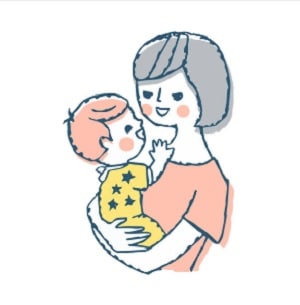When I was twenty-two years old, I wanted two things: 1. To be understood. 2. For people to think I was good at my job....Read more
Many kids are “slow to warm up, ” uncomfortable, or cautious around new people or situations. When they were little, they preferred to be held by a select group of exceptional, dependable people rather than just anyone.
As toddlers, they observe what others are doing while remaining on the “sidelines” until kids are at attracted enough to participate. They might struggle to adjust to changes and may object when a distant relative gives them a bear hug.
Every child has a unique perspective on the world when born. Learn how to support a shy child’s adjustment to new situations and new people and change in ways that work for their personality.

Any early childhood educator will be able to attest that confident kids are always up for trying something new, mingling with strangers, and accepting any new experience that comes their way.
Other kids will shuffle into the room slowly, linger around or behind their parents’ knees, look around with wide eyes, droop their heads when someone speaks to them, and be wary of trying new things. These kids are labeled shy, timid, or resistive, and the connotation is frequently that the kid has a flaw or a problem they need to grow out of.
Related Article: How To Make Babies Like You
What is a child’s slow to warm up temperament
A child’s distinct way of interacting with the outside environment is seen through behavior in the first few days, weeks, and hours after birth. Temperament is a personality trait impacted by genetics and parental and career supervision.
The features of a slow-to-warm-up temperament are discussed in this article. Children that take longer to warm up, or approximately 20% of children, stand out for being cautious and waiting things out. Slow-warming children acclimate to novelty and change more slowly, and they are less adaptable when adjusting to new situations or routines. But they do adjust when they are well-prepared for change.
Children who take a while to warm up are extremely sensitive to both their own and other people’s emotions. They experience their emotions strongly. When given appropriate direction, kids develop deep empathy and compassion. These characteristics support them in forming close bonds with both adults and their peers. They would rather form a select few close friendships than many.
Parenting advice for getting your kid warm up to you

Some parenting advice for gaining your child’s trust.
Tell your child that you accept and love her when you can, be considerate of her needs, and keep her birthday celebrations intimate with just a few close friends rather than throwing a huge party with 15 kids and a clown, for instance. Avoid giving labels; Being told to “don’t be so shy” is akin to being told to “be yourself.” Seek out chances to increase your child’s self-assurance. Keep track of your child’s achievements, milestones, and interests.
Play with your youngster while doing activities they like. Give your child some time to get used to new carers. Your child may never be the one to sprint into the arms of the nanny as you leave the house. So, make a strategy to aid your child’s comfort with the carer.
Inform people about new persons, occasions, and locations. Inform your youngster that her Uncle Bob will be stopping by, that a friend’s birthday is later that day, or that she will be switching rooms at creche next week. Giving your child a sense of control by letting her know what to anticipate will help her feel less anxious.
Do you want to check whether we can participate? Invite family and friends over to your place. Children can practice social skills in a comfortable, secure environment by getting together with family and friends.
Consult books on friendship. Little Blue and Little Yellow by Leo Lionni, Gossie and Gertie by Olivier Dunrea, My Friends by Taro Gomi, or How Do Dinosaurs Play With Their Friends? by Jane Yolen are some fantastic books to read aloud to infants and young children.
Set a good example. Your youngster learns to feel at ease and interact with strangers when you say hello to pals on a neighborhood walk or chat with the nurse at the doctor’s office.
How can I prevent my kid from being shy
Although they are adorable, young kids can occasionally be bashful. If you haven’t spent much time around children, you could feel you don’t get along with them. There are a few simple things you can do to immediately build a relationship with a child and discourage shyness. Regardless of your role in a child’s life, you may boost their self-esteem and win their trust.
To avoid coming across as scary, keep your grin and body language open. Kids may find adults frightening, especially if they don’t know you well. Make the child feel comfortable by demonstrating your friendliness.
Keep your arms open, smile at the kid, and lean in their direction. Try to get on their level when you need to speak with them directly.
When playing with the child, please give them your undivided attention. Even though you have a lot on your mind, try to focus on the current moment while playing. Even if it’s only for 15 minutes, devote the child your complete attention for the allotted time.
How can I help my child warm up socially
Socialization may be more challenging for sure kids than for others. Your child may require assistance to develop social skills if they have difficulty interacting with others or seem reticent. You can assist in several ways.
• Practice speaking.
Use role-playing, puppetry, and storytelling to practice speaking. All day long, communicate with your youngster. For them to improve their language skills, you can also describe what you’re doing. Let your child observe you utilizing polite expressions of gratitude and please. They will be inspired to behave in this manner towards their peers.
• Pay attention and rotate.
Children pick up skills from those around them, both verbal and nonverbal. You might try the following strategies to encourage your child to listen well: • Try modeling good listening behavior for them through your actions.
‘Simon Says’-style games are a good idea.
• Review some suggestions for kids’ listening games.
Find approaches to making turning fun. Tell your family they must hold the thing they have chosen while speaking. Pass it back and forth. Take turns making up sounds to simulate an extraterrestrial discussion if your youngster is a little older.
• Instruct them about respecting personal space
Take into account educating your kid about personal space. This is their personal space; don’t ask them to extend their elbows or place their hands on their hips. To demonstrate how to give others space, have everyone in the room walk around with their elbows extended. By requesting permission to enter their space, you can introduce the concept of boundaries.
How can you tell whether a kid likes you
If a child loves you, he will exhibit these behaviors.
Be ready for hugs, cuddles, and sloppy kisses by the time your kid reaches the age of 15 months. Your child may alternate between exploring and racing back to cuddle in your lap in a strange environment. You can take them up and hold them close by taking their raised arms. Even though it appears natural, it indicates that your kid loves and trusts you.
Maybe they kiss you when you hurt yourself or offer you their particular blanket when they see you crying. When they feel offended or upset, they behave as you would. That’s a lot of love.
Why is my child slow to warm up
Every child has a unique temperament, which we refer to as how they view the world. Therefore, your child may take a while to warm up. Your child does not pick their temperament, and neither did you when you produced them.
One crucial aspect of temperament is how a youngster reacts to new circumstances and strange individuals. The truth is that some kids naturally feel more at ease in unfamiliar surroundings and dive right in, while other kids are more cautious. They require time and assistance from kind adults to feel at ease in strange surroundings.
Is it slow to warm up temperament because of specific traits
Slow-to-warm-up kids may exhibit undesirable traits such as shyness, reserve, timidity, fear, pickiness, whininess, bashfulness, anxiety, scaredy-cat, touchiness, stubbornness, relatedness, and babyishness. Slow-warming children are often excellent observers who pick up on nuances others miss. They frequently exercise good impulse control and deliberate action.
If my child doesn’t warm up to me, does that mean he hates me
Because they look unresponsive and don’t show you physical affection, your child may make you feel like they despise you. For instance, if you try to hug your toddler, they push you away or seem distant.
Remember that they are probably only attempting to tell you they have strong feelings about anything. Your child may have trouble coping with rage, grief, and frustration, or perhaps they feel perplexed and unsure how to handle such emotions.

Conclusion
Your child should be both your partner and closest friend. He should feel confident in you in all aspects of life. You must be your child’s safe place, comfort, and go-to place if you want them to warm up to you. Little kids want to know that you admire and appreciate them, especially when they put in much effort. Praise the kid a lot to let them know you value them. Look for chances to compliment them, and here you go!

When I was twenty-two years old, I wanted two things: 1. To be understood. 2. For people to think I was good at my job. As a first time founder, I remember feeling under-qualified. I felt like an impostor—and it showed. I struggled to communicate my value in a way that my colleagues and potential investors could understand. I realized I needed to clarify my message and use social media as a tool to help me build my personal brand. This would help me look more credible, I thought. So I got to work. I updated my social media profiles, built a personal website, and began sharing my story online. The more content I shared, the more confident I became. And the more confident I became, the more credible I appeared. Now i am writing blogs for madeforkids.co.uk on different topics on kids.
- Latest Posts by Anna Vatuone
-
What Are The Uses Of A Drone
- -
What Are The Uses Of Playhouse
- -
Urgent Recall of Sweet Popular with Kids
- All Posts
